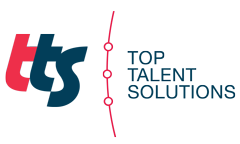In a world that has become comfortable with remote work, talent managers have also had to adapt their approach to commonplace tools like interviews. No longer are face-to-face interviews as uncomplicated as they once were. Social distancing has meant that virtual interviewing as an alternative to traditional interviews are now favored.
An easy solution to the need for social distancing and interviewing has been using live, video-based interviews (i.e. two-way interviewing): Essentially a video call version of face-to-face manager-led interviews.
However, such methods, although convenient, inherit the same limitations as traditional interviewing:
- Both candidate and interviewers have to match diaries and find a time convenient to both parties. At best, this is a difficult and onerous task.
- As is the case with all two-way interviews, candidates have only one opportunity to put their best foot forward. This runs the risk of false negatives if a good candidate has a bad day.
- Ratings of two-way interviews are often done off-line, risking data loss or compromise.
To address these limitations, one-way virtual interviewing is a cost-effective, more efficient and accurate way of conducting interviews. One-way interviews allow candidates to upload their video answers to interview questions and in turn, allow interviewers to view and rate these responses at a time that is convenient to them.
Let’s take a look at how such technologies help talent managers in the modern world-of-work.
One-way interviews are more efficient
Perhaps the greatest advantage of one-way virtual interviews is how time and cost-effective they are. Diary juggling is no longer a problem as both interviewee and interviewer can finish their respective tasks at a time and place of their choosing.
In addition, because video responses are recorded for later viewing, interviewers can rapidly work through interview responses, thus saving time and cost spent in interviewing. This often translates into quicker time-to-hire, which candidates appreciate as well.
These benefits become especially useful when recruiting large volumes of candidates using interviewing. The time savings of having pre-recorded interview answers, coupled with interviewers being able to choose their own diary slots for rating responses, is far more efficient than typical two-way interviews conducted either telephonically or via video.
In this regard, one-way virtual interviewing is especially suited to high volume interviews where forming an overall impression, or rating candidates’ oral presentation skills is important. And because interview ratings can easily be integrated into merit lists and other reporting, managers can review even large numbers of potential hires in terms of interview scores achieved.
Unlike offline processes common in two-way interviews, one-way interviewing technology allows for a seamless and instantaneous transfer of scores without the risks of data loss or errors.
One-way interviews are more fair
Anyone who has ever been interviewed in a live setting knows how anxiety and nervousness can affect one’s answers and bearing in an interview.
One-way virtual interviews allow candidates to attempt questions multiple times and only upload answers that they consider to be their best possible response. This controls for false negatives due to “nerves on the day” and is also perceived as very fair by interview candidates.
One-way interviews are more consistent & convenient
One-way interview platforms, like TTS product partner RecRight’s one-way interviewing system, standardizes rating across all interviewers. Ratings are captured online and stored as data points for later analysis or reporting.
As such, all interviewers use the same rating scale and threats of data loss or compromise due to offline capturing of results are drastically reduced.
Hiring managers and talent professionals alike also appreciate the convenience of one-way interviewing. Why? Because both candidates and interviewers can complete their respective interview tasks 24 hours a day, 7 days a week without the need to mutually schedule time whatsoever.
Final Thoughts
TTS has identified best-of-breed interview technologies to help our clients become more efficient, fairer, and more consistent in their virtual interviewing practices. For more reading on this exciting technology, click here.
Our product partner, RecRight, is an industry leader in hosting and managing the technology needed for one-way virtual interviews. If you are interested in exploring how this exciting technology could benefit your organization, why not drop us a line at: info@tts-talent.com?


